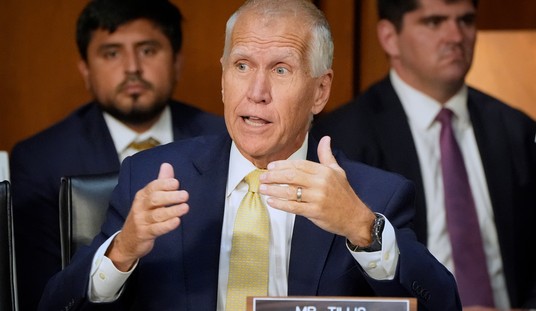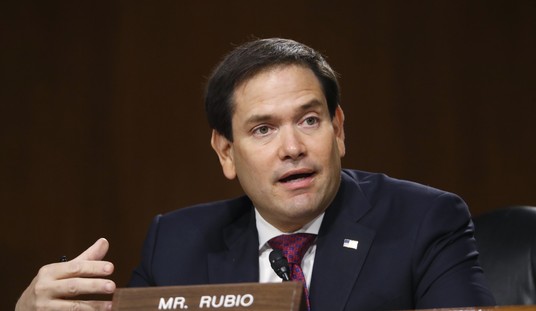Many argue that America is marching toward socialism. This march started during the Progressive Era of the early 1900s as a softer, incremental, and stealthier ideology than the European Marxism that culminated in revolution and the establishment of the Soviet Union in 1917. This communist ideology spread to Asia, Africa, and South America. It threatened us during the 1940s-1950s (during the McCarthy era), but never gained a strong following in this country. In socialism, the means of production are owned or controlled by the state, while in capitalism individuals manage and own the economic resources (with corporatism blurring the lines, but ultimately in favor of the state as well.) One can view progressives, liberals, and socialists as different points on the continuum from capitalism to communism, rather than as distinct ideologies. Many liberals want to improve society, however many of their programs conflict with the political system established by our Founders. Can we better understand the movement and halt their dangerous plans?
With the pressure being applied by the White House upon the Democrats in the House of Representatives to approve the Senate health care reform bill, this danger becomes more evident. Many Americans oppose the secrecy and deal-making and worry about the details of the reform bills. These politicians grab power despite the limitations imposed by our Constitution, increasing control over our lives. Liberals claim to correct societies’ ills and this underlies their ability to minimize our liberties. They commonly justify their plans as a remedy for “injustice and unfairness.”
American philosophical ethos and religiosity is unique, often described as the Judeo-Christian ethic. Religion is a unified system of beliefs in order to explain the human purpose within the universe. The form depends upon the deity worshipped and the rituals followed. Our Founders were principally Protestant Christians steeped in Old Testament (Jewish) theology. American ethics (which is an expression of moral values) owes its origins to Greek philosophers such as Socrates and Aristotle as modified by Medieval, Renaissance, Reformation, and Enlightenment era philosophers, and recently influenced by Eastern philosophies with their more naturalistic spirituality. With the European Enlightenment, challenges to Western religion and socio-political order came from the questioning of theology initiated by Descartes, Voltaire, Kant, and Hegel, culminating in the atheism expressed by Karl Marx and Friedrich Nietzsche. In Europe, this trend has spread more quickly and many are irreligious. The overwhelming majority of Americans acknowledge a deity, though this fervor has declined.
In America centralized power has arisen incrementally. The progressive uses evolutionary rather than revolutionary change, while the radical Marxist uses a more revolutionary approach. Accumulation of private wealth in the form of property, precious metals, money, and consumables predates recorded history. However, socialists strive to criminalize these efforts through this modern “Robin Hood” approach.
The period of the Enlightenment initiated a fascination with the individual, culminating in the establishment of the USA. In the Declaration of Independence, our Founders established the right of a people to overthrow unjust rulers under natural law and to abolish tyranny. While the Articles of Confederation failed owing to a weak union, the Framers corrected this in the Constitution. They established a different form of representative democracy from the European parliamentary system. In Europe, the people had accepted joint cooperation between powerful individuals, businesses, and government owing to their history of feudalism. In the European system the executive branch arises from the majority party of the legislature. In the American approach the three branches are distinct, limiting any branch’s power. This has worked well for 220 years. The economic result is a more diffuse capitalism. With a less unified government, it is harder for politicians to regulate our economy.
Our socio-political system incorporates the Judeo-Christian ethos. Embossed on our money are the words “in God we trust” and “liberty.” This results from the Framers’ belief that God grants freedom. In America, many of the earliest settlers were seeking religious freedom from the Church of England. The Pilgrims and Puritans followed a Hebraic form of Christianity with their dependence upon scripture rather than church leadership. American “manifest destiny” was seen by these immigrants as an expression of God’s satisfaction with America as the inheritor of his covenant from the Jews. Charity and community virtues were seen as religious requirements. In “A Model of Christian Charity” delivered by Gov. John Winthrop in 1630 on board the ship Arbella, he borrows the biblical principles from the Old and New Testament which underlie American generosity and collectivism which was necessary for survival in a new and hostile environment. During the period of the Enlightenment in Europe the ideas of individual rights and material wealth were encouraged by Voltaire, Adam Smith, Kant, and Hegel. The Enlightenment in Europe ultimately merged the established aristocracy with a state regulated capitalism. It was this structure that Marx and Engels sought to replace. In our country there was no established aristocracy resulting from feudalism, so a meritocracy ensued, with an individualistic capitalism (sometimes falsely called laissez faire). This divided government has reduced control over our economy. However, gaining control over 16% of our economy through the health care system may allow politicians to establish a more European styled socialist society. This explains the relentless effort despite the Massachusetts’ senatorial results. Politicians have seized upon our concern for equality and decency which is our religious legacy. They have substituted a secular “fairness” to gain greater control over our lives.
Socialism is devoid of religious purpose (through relativism or humanism), while capitalists often invoke religion (as absolute natural law). Religious dogma has been supplemented by modern calls for “social justice and social action.” Ministers, priests, and rabbis have long called for help for the less fortunate. So the American religious community has merged political purposes with religion. Though Americans are overwhelmingly theistic, church and synagogue attendance has declined. This void is being filled by government and secular social action groups. Early schools in America were organized through churches, but eventually elementary and secondary education was adopted by the government to ensure equal access. The result has been an expensive mediocrity. Is the same ahead for the health care industry?
There are differences between Judeo-Christianity and socialism. Socialism postulates a solution to questions of inequity through class struggle, favoring the disadvantaged over the wealthy. The Judeo-Christian ethic looks to the rejection of God’s word as the cause of failure. The different approaches do not stop the atheists from appropriating the terminology of religion. And therein is the Achilles heel of the American values. Secular politicians use our concern for less fortunate people to secure greater power, thus eroding our freedoms. And that is the disguise in this masquerade.









Join the conversation as a VIP Member